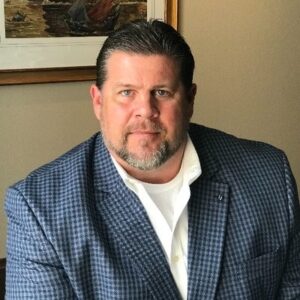
On this episode of the Massimo Show
Rod sits down with Dave DesRochers. Dave is a former offensive lineman who was a 12th round pick in the 1987 draft and played in the Seattle Seahawks organization for a couple of years. After his football career, he got into acting and worked on various television shows, movies, and commercials. After moving on from acting he owned a financial investment firm for about 20 years. Today he is the Vice President of PATH2HappiSuccess which is a company that helps lead students to better college experiences and assists them in finding lifelong careers that will lead to their happiness.
Early Years
In High school, Dave was a basketball player – tall and lanky. He was good enough to make it to the final cut for the Olympic development team and get scholarship offers at small universities. The football coach approached him in his junior year and asked if he was going to play. “I said ‘no, I am a basketball player and I have some scholarships.’” Dave recalls. Despite Dave’s protests the coach encouraged him to come and play football and promised him even better scholarship opportunities. Dave remembers telling the coach “I’m not very good. I like football, and I want to be, but I’m not.” The coach said he’d help him but 3 practices in he pulled Dave aside and said “you know you’re not very good. You really need to work on your footwork” and handed Dave a jump rope.
Despite his skepticism, Dave took the jump rope home and worked until he was proficient at it. “The jump roping gave me confidence,” Dave tells Rod “and I did fairly well that year.” Dave was offered scholarships to CAL, U of A, Hawaii, Fullerton on a dual scholarship and the school he chose, San Diego State.
Dave was taken on a scholarship with potential. What he came to find out is potential is a nice way of telling somebody “you are not good”. For Dave, it was the same thing with the NFL as well. He was a 12th round draft pick – meaning he was decent and picked based on his potential. Dave credits this mostly to the fact that, unlike many other players, he was in excellent condition. Furthermore, he did things to take care of himself and work hard that most big guys don’t want to have to worry about. What Dave learned is that if you do the little things other people aren’t willing to do, you will succeed. You will put yourself above everyone else in the room.
Life After Football
In 1992 he stopped playing football and became a financial advisor. “My first year I made $5,000,” Dave tells Rod. “The first thing my ex-wife asked was, ‘are you sure you should be doing this?’” The entry-level for the job consisted of cold calling. Dave was handed a phone book and asked to call 25-30 people, speak to 10 and set 2 appointments a day for his advisor. He would have to speak to complete strangers, get them to listen to him, and then get them to come into these appointments. “Most people would dread that” Dave says “I dreaded it, but that was my job.” He would call 100 people and set a goal of setting 5 appointments a day. Dave always doubled what was expected of him and in 2 months, senior management was having him give presentations to all other junior representatives on how to cold call. Within 4 months he was given his own branch, and in 3 ½ years, he was vice president of the bank. “It was like the jump rope, I did something no one wanted to do. I took it and did more, better and quicker. I put myself above everybody else which put me on the fast track to succeed.”
Pivoting, Before it was Cool
Four years ago, Dave was talking with his fiance’s uncle about a program he came up with that would help students solve the problems surrounding changing their major, taking 6 years to graduate, and student loan debt. He was writing his book: Career Happiness and Success: A Definitive Path to Determine Your Best Career. As he was researching college statistics he found 70% of college students change their major once, 33% change it twice or more. He started looking at the career assessments and came up with a program that he thought would be a solution to this problem. He asked Dave to take the program and tell him what he thought. Dave did all parts of the assessment, it took him 3 days, but he realized that this was a program that could help so many more people. Dave went to work with him on this project.
Dave’s Description of the Program
Our program starts with 2 general assessments, we have to know what you are going to love. What that doesn’t say if you will be good at what you love. Being good at something is your aptitude. So we have an aptitude assessment. This is where we begin. We take what you are going to love and what you are good at along with general vocation categories. We use the US dept of labor data of all careers. We have you pull up specific careers in all categories. As you look at them it will show you how much education you will need, how much money you can earn, and the job growth rate.
Listen in to hear Rod and Dave talk about what equates to talent, potential, and the path to happiness.

Dave DesRochers

Dave is the Vice President of PATH2HappiSuccess which is a company that helps lead students to better college experiences and assists them in finding lifelong careers that will lead to their happiness.

- What it takes to set yourself apart from your peers
- Doing things no one else will do will move the needle in your career
- Potential can be the beginning or the end of a long career
- The importance of aptitude versus passion

